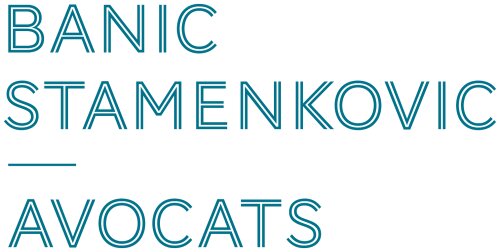Best Collaborative Law Lawyers in Yverdon-les-Bains
Share your needs with us, get contacted by law firms.
Free. Takes 2 min.
Free Guide to Hiring a Family Lawyer
List of the best lawyers in Yverdon-les-Bains, Switzerland
About Collaborative Law in Yverdon-les-Bains, Switzerland
Collaborative Law is an alternative dispute resolution process that enables parties to resolve legal matters outside traditional court proceedings. Rooted in cooperation, this method focuses on helping clients, especially families and couples, find mutually agreeable solutions with the guidance of trained legal professionals. In Yverdon-les-Bains, as in the rest of Switzerland, Collaborative Law is particularly prominent in family law matters such as divorce, separation, and child custody, but it can be used in other civil disputes as well. The collaborative process encourages open communication, transparency, and respect, aiming to prevent contentious litigation and foster long-term, amicable agreements.
Why You May Need a Lawyer
Engaging a lawyer with expertise in Collaborative Law can be crucial in various situations, such as:
- Divorce or Separation - When couples wish to part ways amicably and avoid the emotional and financial costs of litigation.
- Child Custody and Parenting Arrangements - To collaboratively develop parenting plans in the best interests of the children.
- Property and Financial Agreements - For dividing assets and determining financial responsibilities fairly and transparently.
- Modifying Existing Agreements - To revisit and amicably adjust agreements as circumstances change.
- Business Disputes - Where business partners seek non-adversarial solutions to disagreements.
A collaborative lawyer acts as both an advisor and negotiator, ensuring legal rights are respected while facilitating constructive discussions.
Local Laws Overview
In Switzerland, family law matters are governed primarily by the Swiss Civil Code and the Code of Civil Procedure, both of which support amicable settlement options. In Yverdon-les-Bains, Collaborative Law aligns with these legal frameworks and Swiss legal culture, which favors out-of-court resolutions. Key aspects include:
- Voluntariness - Participation in collaborative processes must be voluntary for all parties.
- Transparency - Full disclosure of relevant information, especially regarding finances and assets, is required throughout the process.
- Legal Representation - Each participant is typically represented by their own collaboratively trained lawyer.
- Confidentiality - Discussions and documents shared during collaborative sessions remain confidential and are not admissible in court if negotiations break down.
- Written Agreements - Once a resolution is reached, it can be formalized in a written agreement, which is subject to approval by the competent authorities, such as the local justice of the peace or civil court in Yverdon-les-Bains.
Understanding these local nuances is essential to ensure a smooth and legally compliant collaborative process.
Frequently Asked Questions
What is the main difference between Collaborative Law and traditional litigation?
Collaborative Law emphasizes cooperation, voluntary participation, and amicable problem-solving, whereas traditional litigation often involves adversarial proceedings and decisions imposed by a judge.
Is Collaborative Law legally recognized in Yverdon-les-Bains?
Yes, Collaborative Law is fully recognized in Switzerland, including Yverdon-les-Bains, and courts are generally supportive of mutually agreed settlements reached outside of litigation contexts.
What kinds of cases can be resolved with Collaborative Law?
Collaborative Law is most commonly used in family law matters such as divorce, child custody, alimony, and division of property, but it can also be applied in some civil and business disputes.
Can I start the collaborative process without a lawyer?
While you may begin discussions independently, the official Collaborative Law process requires both parties to retain specially trained collaborative lawyers to guide the negotiations and ensure fairness.
What happens if we cannot reach an agreement?
If the process breaks down, both collaborative lawyers must withdraw, and the parties are free to pursue other dispute resolution methods, such as mediation or litigation, with different legal representation.
How long does the collaborative process usually take?
The duration depends on the complexity of the issues and the parties’ willingness to cooperate, but it is generally faster than traditional litigation.
Is the outcome of collaborative negotiations legally binding?
Yes. Once all parties sign a settlement agreement and it is approved by the appropriate authority, it becomes legally binding.
Can children’s preferences be considered in collaborative family law?
Yes, the needs and preferences of children are a central concern and are actively considered when negotiating parenting arrangements and custody agreements.
Are collaborative lawyers neutral?
No, each collaborative lawyer exclusively represents their respective client’s interests while working towards a mutually beneficial resolution for all parties involved.
What are the main benefits of choosing Collaborative Law?
The process is typically less stressful and costly, preserves privacy, encourages better communication, and often results in more durable and satisfactory agreements for all involved.
Additional Resources
If you are considering Collaborative Law in Yverdon-les-Bains, the following resources may be useful:
- Canton of Vaud Legal Information Office
- Swiss Federation of Lawyers (Fédération Suisse des Avocats - FSA/SAV)
- Association of Collaborative Family Lawyers Switzerland
- Local justice of the peace (Justice de paix) office in Yverdon-les-Bains
- Family mediation centers in the Vaud region
These organizations provide legal information, lawyer directories, and support for individuals interested in collaborative dispute resolution.
Next Steps
If you believe Collaborative Law may be right for your situation in Yverdon-les-Bains, consider the following steps:
- Reflect on your goals and openness to cooperative negotiation.
- Consult with a lawyer trained in Collaborative Law to evaluate your case and explain the process.
- Discuss the collaborative approach with the other party, if appropriate.
- Arrange for both parties to retain their own collaborative lawyers.
- Begin the process with joint meetings to identify issues, exchange information, and work towards a mutually acceptable agreement.
- Formalize your agreement with the assistance of your legal counsel and submit it, if required, for court approval.
Taking these steps ensures you receive informed support throughout the collaborative process and increases the likelihood of a satisfactory and lasting resolution.
Lawzana helps you find the best lawyers and law firms in Yverdon-les-Bains through a curated and pre-screened list of qualified legal professionals. Our platform offers rankings and detailed profiles of attorneys and law firms, allowing you to compare based on practice areas, including Collaborative Law, experience, and client feedback.
Each profile includes a description of the firm's areas of practice, client reviews, team members and partners, year of establishment, spoken languages, office locations, contact information, social media presence, and any published articles or resources. Most firms on our platform speak English and are experienced in both local and international legal matters.
Get a quote from top-rated law firms in Yverdon-les-Bains, Switzerland — quickly, securely, and without unnecessary hassle.
Disclaimer:
The information provided on this page is for general informational purposes only and does not constitute legal advice. While we strive to ensure the accuracy and relevance of the content, legal information may change over time, and interpretations of the law can vary. You should always consult with a qualified legal professional for advice specific to your situation.
We disclaim all liability for actions taken or not taken based on the content of this page. If you believe any information is incorrect or outdated, please contact us, and we will review and update it where appropriate.









